Why US ambassador’s moustache is a tickly topic in South Korea
Harry Harris’s facial hair has triggered a diplomatic spate
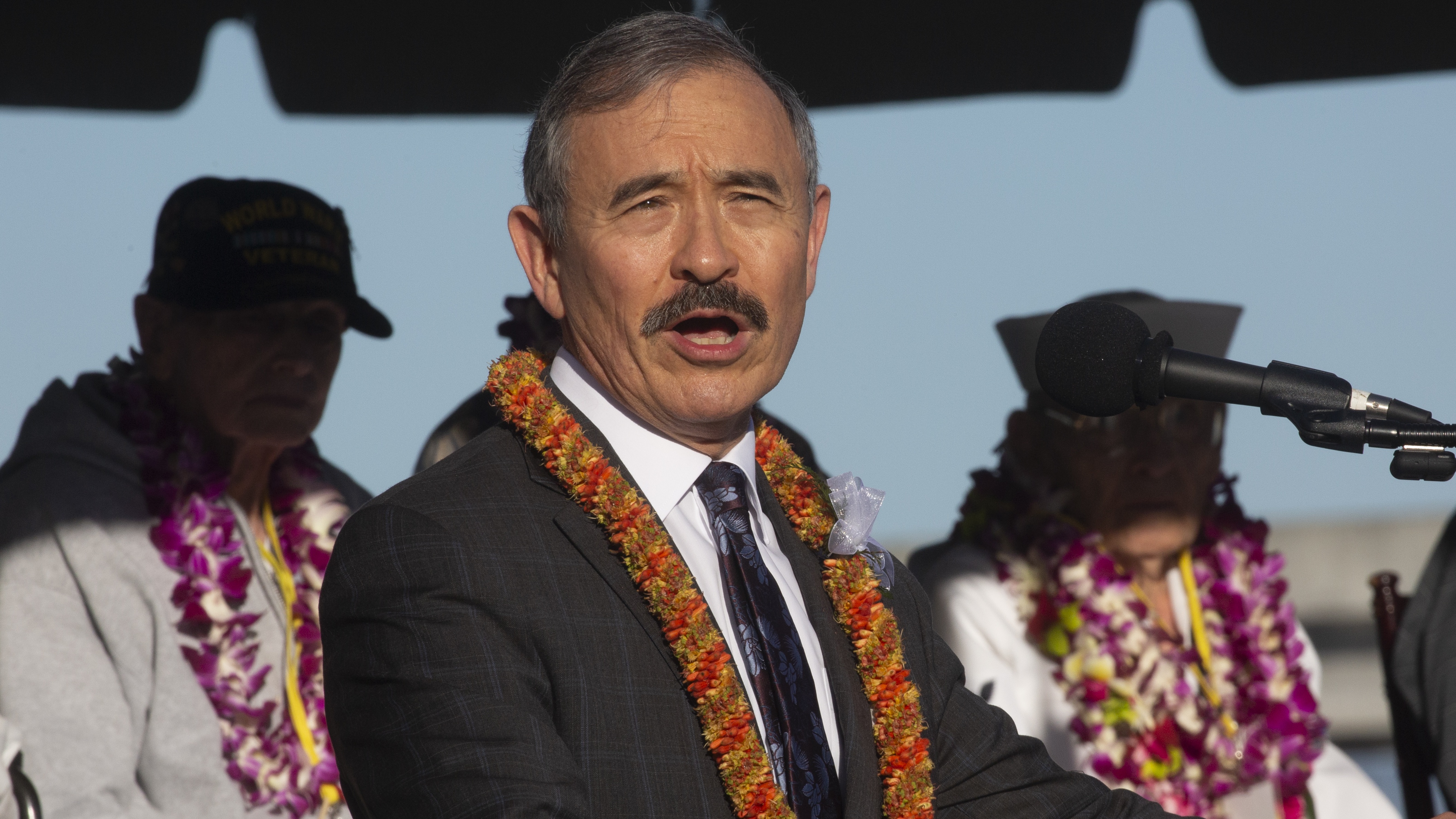
A free daily email with the biggest news stories of the day – and the best features from TheWeek.com
You are now subscribed
Your newsletter sign-up was successful
The US ambassador to South Korea has hit back at his hosts after being accused of insulting them by growing a moustache.
Critics claim Harry Harris’s facial hair reminds them of that sported by officials in the Japanese colonial government that ruled the peninsula from 1910 to 1945 - a period of history that is still a source of widespread bitterness in Korea.
But Harris says he is being singled out because of his Japanese-American heritage. The ambassador was born in Japan in 1956 to a Japanese mother and a US navy officer.
The Week
Escape your echo chamber. Get the facts behind the news, plus analysis from multiple perspectives.

Sign up for The Week's Free Newsletters
From our morning news briefing to a weekly Good News Newsletter, get the best of The Week delivered directly to your inbox.
From our morning news briefing to a weekly Good News Newsletter, get the best of The Week delivered directly to your inbox.
“My moustache, for some reason, has become a point of some fascination here,” he told reporters in Seoul. “I have been criticised in the media here, especially in social media, because of my ethnic background, because I am a Japanese-American.”
Harris grew a moustache to mark the start of his diplomatic career back in July 2018, after being clean-shaven during most of his preceding 40-year naval career.
“I wanted to make a break between my life as a military officer and my new life as a diplomat,” he told The Korea Times last week. “I tried to get taller, but I couldn’t grow any taller, and so I tried to get younger, but I couldn’t get younger. But I could grow a moustache, so I did that”.
South Koreans have been critical of his facial fur since he first arrived in Korea, with many social media users drawing comparisons with the taches worn by all eight Japanese governors-generals during the colonial era. But the censure has increased in recent months, amid rising tensions with the US.
A free daily email with the biggest news stories of the day – and the best features from TheWeek.com
Harris has also been slated for his support of Donald Trump’s demands that South Korea should pay $5bn (£3.83bn) a year towards the cost of hosting 28,500 US troops in the country.
But the ambassador remains unapologetic about both his political and grooming choices. Asked if he would consider going clean-shaven again, Harris replied: “You would have to convince me that somehow the moustache is viewed in a way that hurts our relationship.”
When did Japan rule in South Korea?
Japan ruled South Korea for 35 years from 1910, and “worked to wipe out Korean culture, language and history”, says History.com.
“For the first ten years Japan ruled directly through the military, and any Korean dissent was ruthlessly crushed,” according to the Columbia University website.
Following nationwide protests, the Japanese authorities allowed a more tolerant regime - but that all changed once again during the wartime mobilisation of 1937-45.
Koreans “were forced to work in Japanese factories and were sent as soldiers to the front”, and “tens of thousands of young Korean women were drafted as ‘Comfort Women’ - in effect, sexual slaves - for Japanese soldiers”, says the university site.
Japanese rule over Korea ended on 15 August 1945, when Tokyo surrendered to the Allies, effectively ending the Second World War.
The Korean Peninsula was subsequently divided, with the Soviet Union occupying the north and the US occupying the south.
-
 Is Andrew’s arrest the end for the monarchy?
Is Andrew’s arrest the end for the monarchy?Today's Big Question The King has distanced the Royal Family from his disgraced brother but a ‘fit of revolutionary disgust’ could still wipe them out
-
 Quiz of The Week: 14 – 20 February
Quiz of The Week: 14 – 20 FebruaryQuiz Have you been paying attention to The Week’s news?
-
 The Week Unwrapped: Do the Freemasons have too much sway in the police force?
The Week Unwrapped: Do the Freemasons have too much sway in the police force?Podcast Plus, what does the growing popularity of prediction markets mean for the future? And why are UK film and TV workers struggling?
-
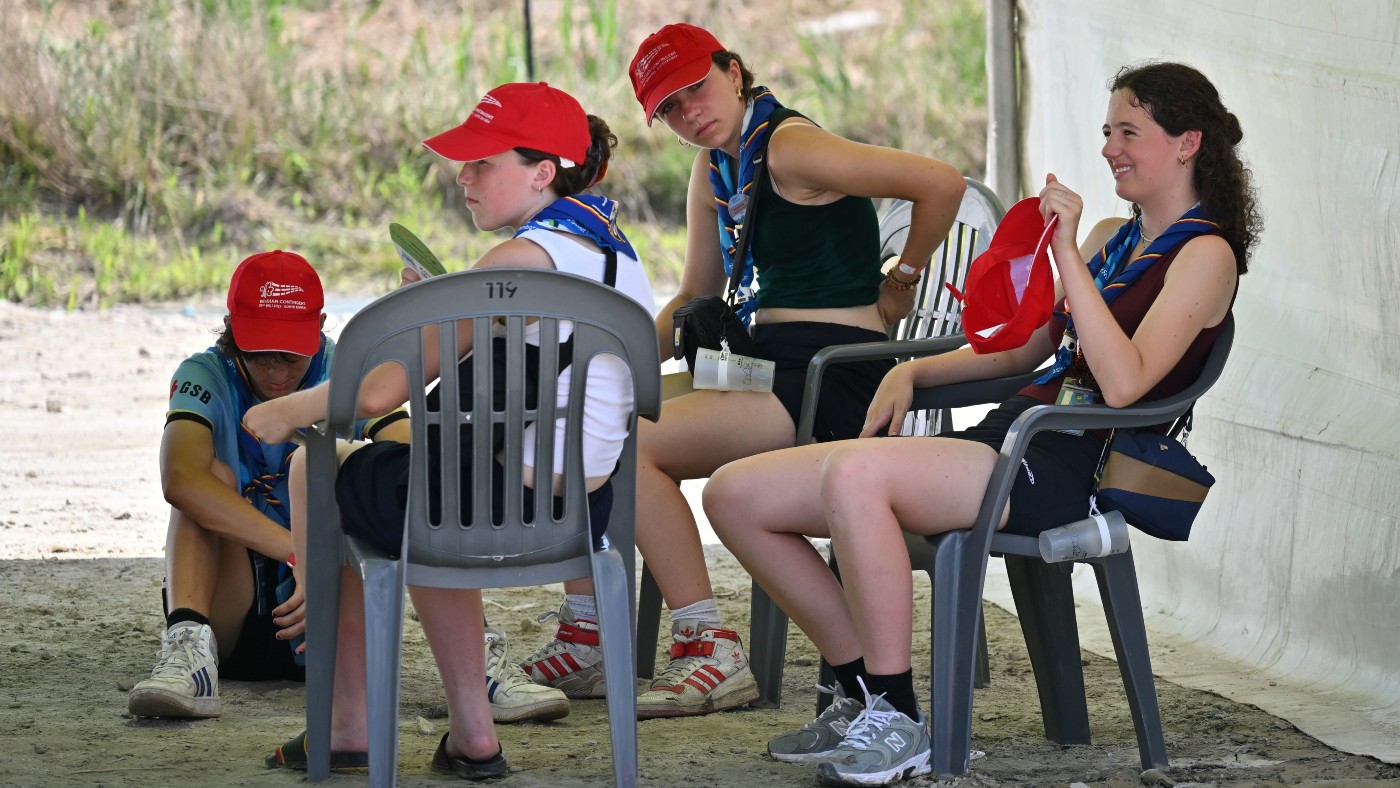 Hundreds of children hit with heat exhaustion at World Scout Jamboree in South Korea
Hundreds of children hit with heat exhaustion at World Scout Jamboree in South KoreaSpeed Read One British parent said children ‘think they are going to die’
-
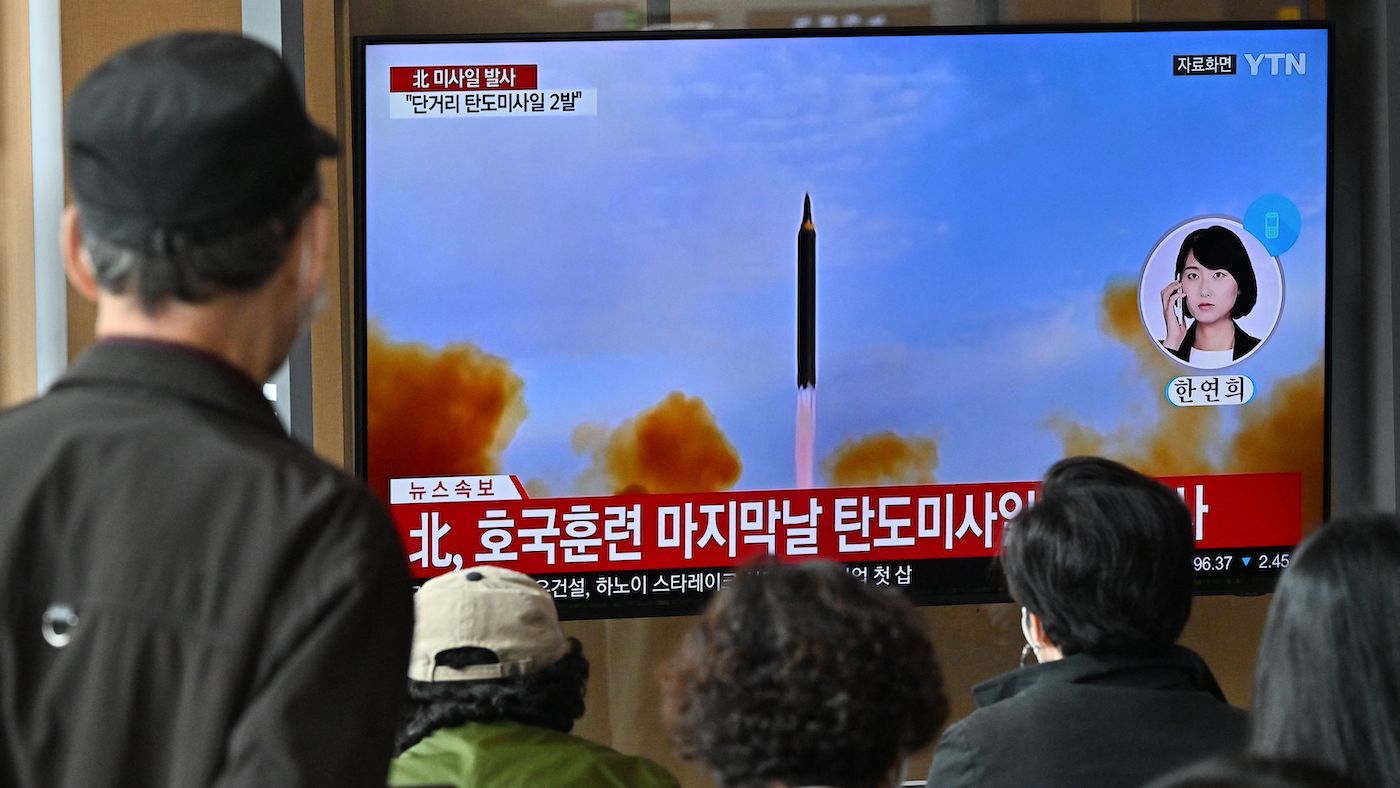 North Korea launches 1,000km missile towards Japan after threatening US
North Korea launches 1,000km missile towards Japan after threatening USSpeed Read Pyongyang warned Washington of ‘shocking’ repercussions over alleged spy planes
-
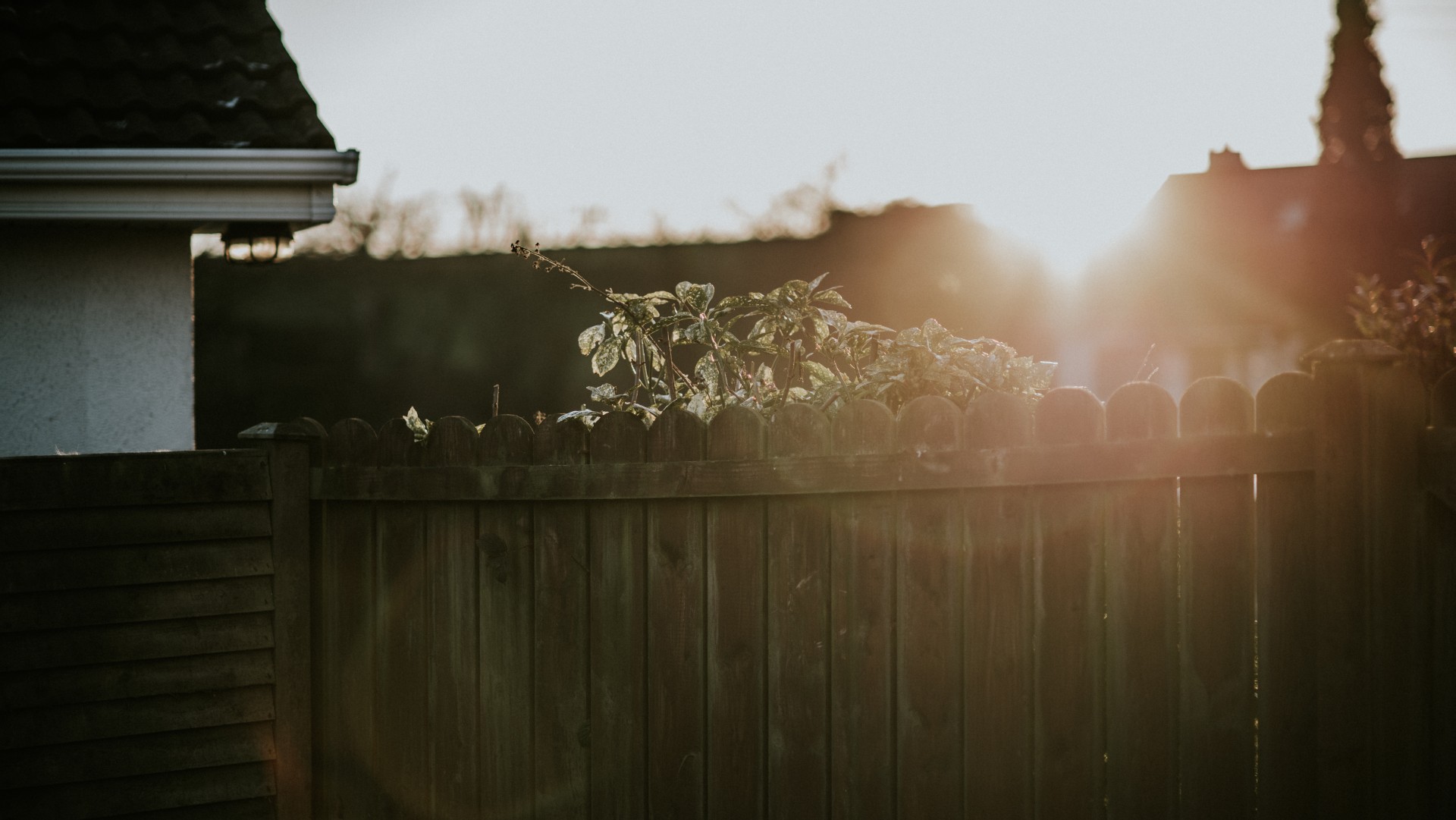 Council accused man of stealing his garden
Council accused man of stealing his gardenfeature And other stories from the stranger side of life
-
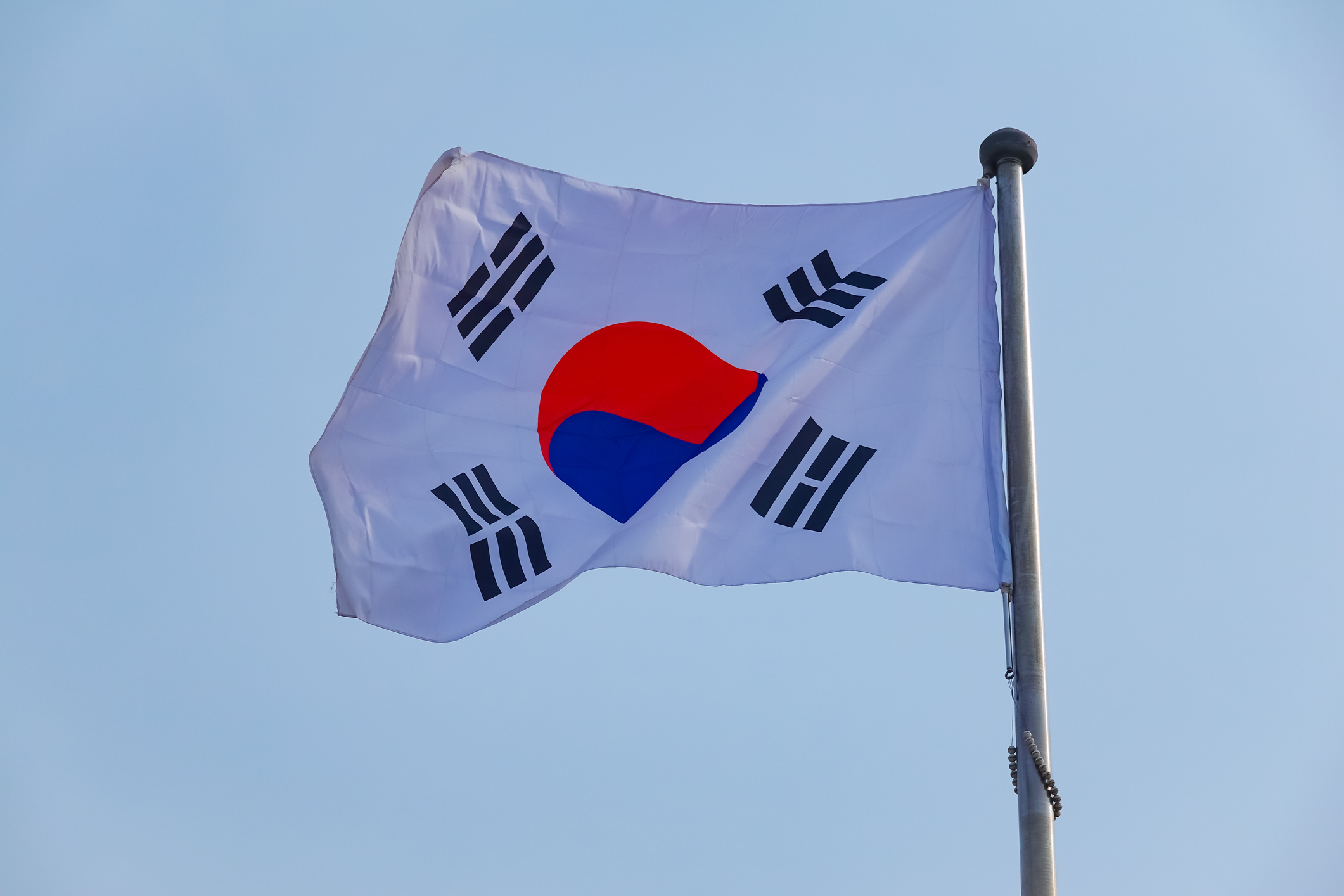 South Koreans suddenly become younger thanks to new 'international age' law
South Koreans suddenly become younger thanks to new 'international age' lawSpeed Read
-
 Company teaches mask-wearers to smile again
Company teaches mask-wearers to smile againfeature And other stories from the stranger side of life
-
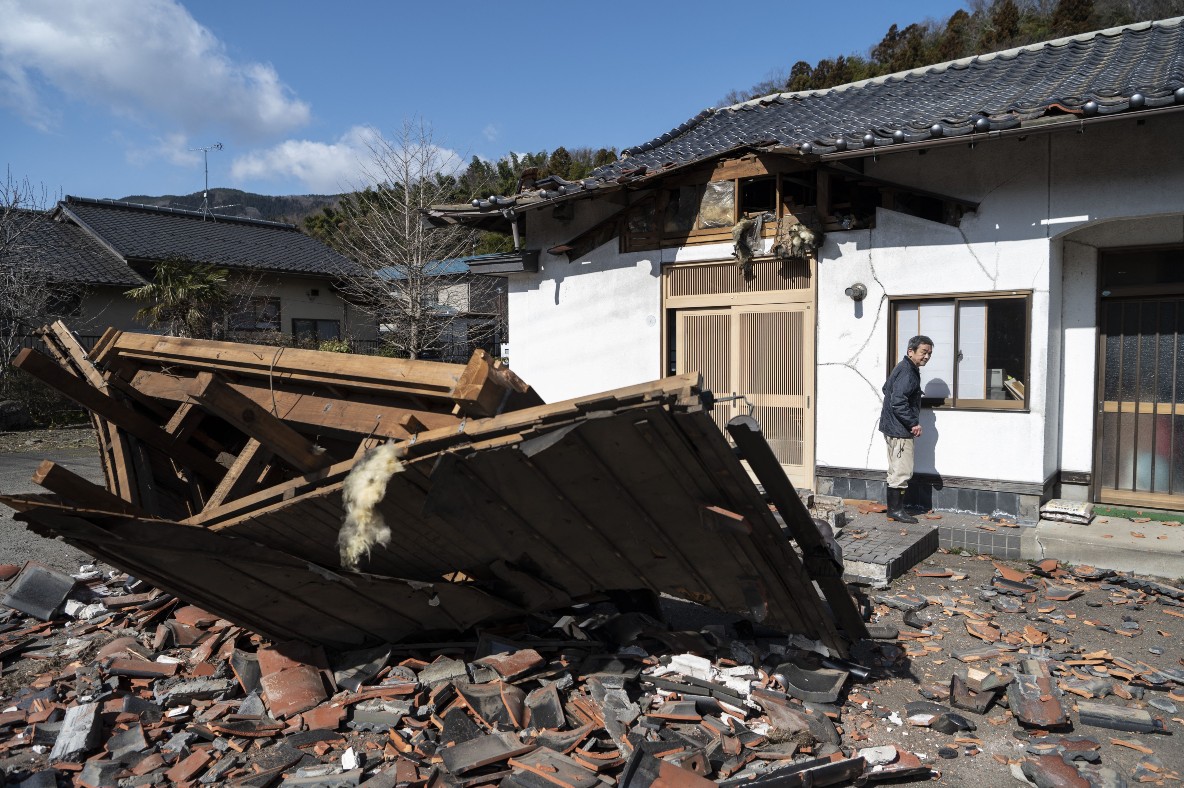 Japanese vending machines to automatically offer free food in earthquakes
Japanese vending machines to automatically offer free food in earthquakesSpeed Read Supply of nutritional supplements and drinks would be unlocked in the event of a major disaster
-
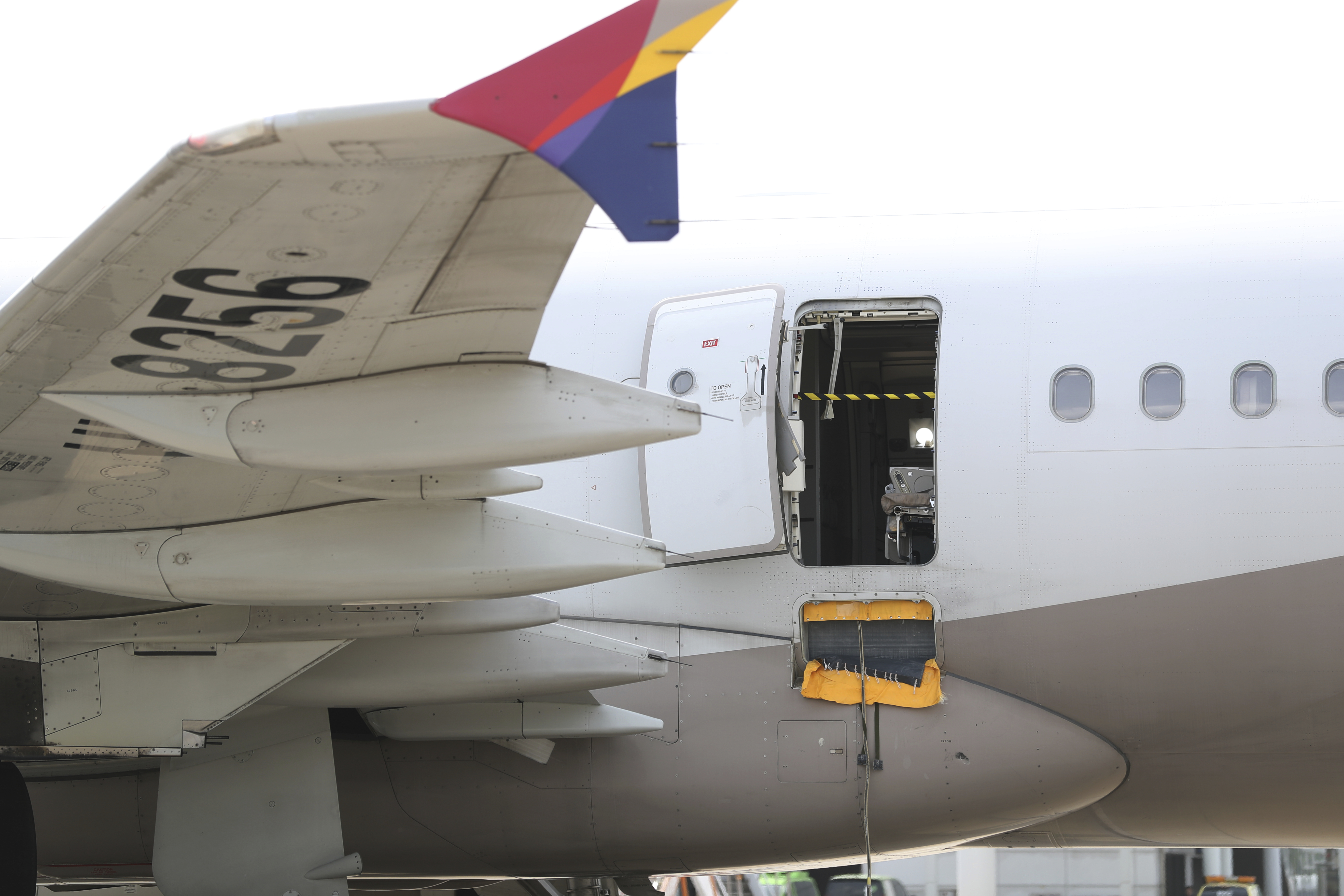 South Korean man facing up to 10 years in prison after opening airplane door in midair
South Korean man facing up to 10 years in prison after opening airplane door in midairSpeed Read
-
 Why South Korea's young people are so lonely
Why South Korea's young people are so lonelySpeed Read Could a financial stipend help the nation's "reclusive" lonely young people?